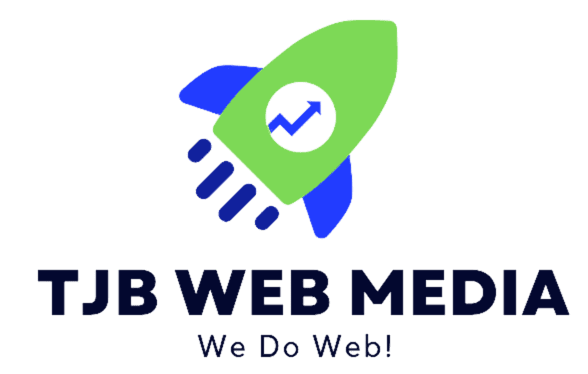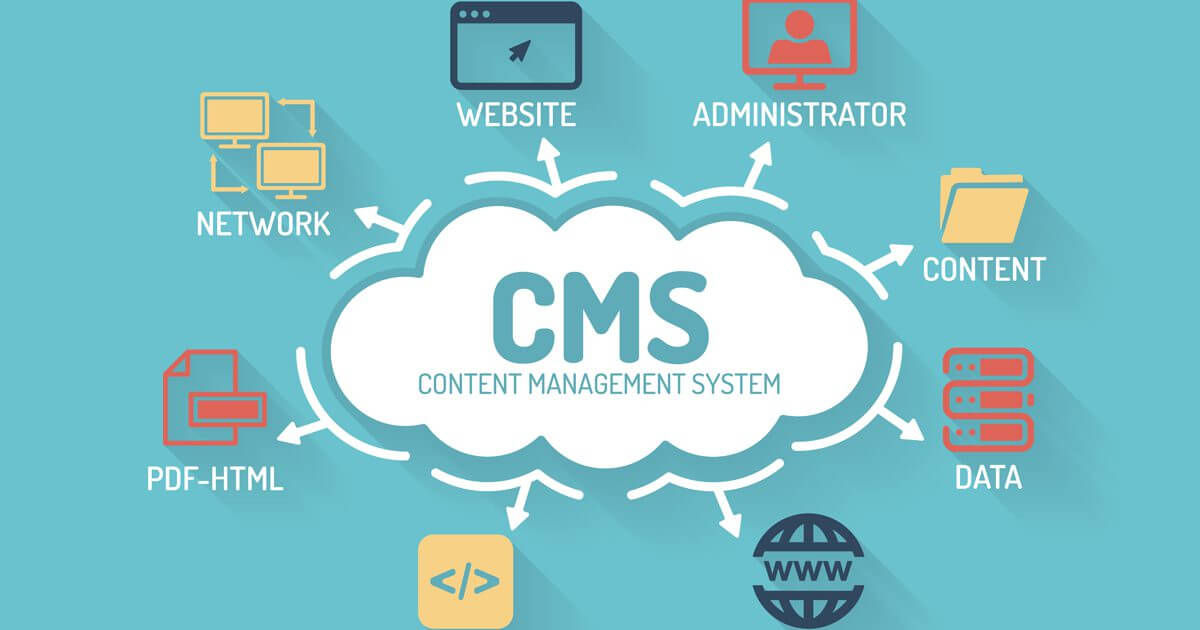As the digital landscape continues to evolve, selecting the right Content Management System (CMS) is crucial for businesses and individuals looking to build a robust online presence. In 2024, the best CMS options not only facilitate seamless web design but also enhance search engine optimization (SEO) capabilities. This article compares the top CMS platforms in terms of their design flexibility, SEO features, ease of use, and overall performance.
Comparing the Best CMS for Web Design & SEO
1. WordPress
Design Flexibility: WordPress remains the most popular CMS, powering over 40% of all websites. Its flexibility is unparalleled, thanks to an extensive library of themes and plugins. Whether you are a beginner or an advanced user, WordPress offers tools that can help you create visually appealing and highly functional websites. Customization is made easy with page builders like Elementor and Gutenberg.
SEO Features: WordPress excels in SEO with plugins like Yoast SEO and All in One SEO Pack. These plugins offer features such as XML sitemap generation, meta tag management, and content analysis to help improve your website’s visibility on search engines. WordPress also supports clean, SEO-friendly URLs and integrates well with Google Analytics.
Ease of Use: WordPress strikes a balance between ease of use and powerful features. Its intuitive interface makes it accessible for beginners, while more experienced users can leverage its advanced capabilities through custom coding and extensive plugin options.
Overall Performance: With regular updates and a vast community, WordPress remains reliable and secure. However, to maintain optimal performance, users need to manage their plugins and updates effectively.
2. Joomla
Design Flexibility: Joomla is known for its flexibility and complexity, catering to users who require more advanced functionality than what WordPress offers. It provides numerous templates and extensions, allowing for significant customization. Joomla is suitable for building complex websites, such as online stores and social networks.
SEO Features: Joomla has strong built-in SEO capabilities, including support for SEF URLs, meta descriptions, and keywords. Extensions like Easy Frontend SEO (EFSEO) and sh404SEF enhance its SEO functionality further, providing tools for managing metadata, generating sitemaps, and more.
Ease of Use: Joomla has a steeper learning curve compared to WordPress. Its interface is not as intuitive, making it better suited for users with some technical background. However, once mastered, Joomla offers powerful features and flexibility.
Overall Performance: Joomla is a robust and secure platform, regularly updated by its community. Performance can be optimized through various caching options and extensions, but it may require more hands-on management compared to WordPress.
3. Drupal
Design Flexibility: Drupal is renowned for its flexibility and scalability, making it ideal for large, complex websites. It offers extensive customization options through modules and themes. Drupal’s design capabilities are more suited for developers due to its complexity and potential for custom development.
SEO Features: Drupal’s SEO capabilities are strong, with modules like Pathauto for creating SEO-friendly URLs, Metatag for managing metadata, and XML Sitemap for generating sitemaps. It also supports clean URLs out of the box, which is beneficial for SEO.
Ease of Use: Drupal has the steepest learning curve among the major CMS platforms. Its complexity requires a higher level of technical expertise, making it less suitable for beginners. However, for those with the necessary skills, Drupal offers unparalleled control and customization.
Overall Performance: Drupal is known for its performance and security. It is highly scalable and can handle large amounts of content and high traffic volumes. Regular updates and a strong community ensure that Drupal remains secure and reliable.
4. Wix
Design Flexibility: Wix is a popular choice for users seeking an easy-to-use, drag-and-drop website builder. It offers a wide range of templates and design options, allowing users to create visually appealing websites without any coding knowledge. While it may not be as flexible as WordPress or Joomla in terms of customization, it provides ample design freedom for most users.
SEO Features: Wix has made significant strides in improving its SEO capabilities. It offers built-in SEO tools such as SEO Wiz, which provides personalized SEO plans, and supports features like custom meta tags, alt text for images, and clean URLs. However, it lacks some advanced SEO functionalities available in other CMS platforms.
Ease of Use: Wix is one of the most user-friendly CMS platforms available. Its drag-and-drop editor and intuitive interface make it easy for anyone to build a website quickly. This ease of use comes at the cost of some flexibility and advanced features, but it’s an excellent option for small businesses and individuals.
Overall Performance: Wix offers reliable performance with fast loading times and secure hosting. However, because it is a hosted platform, users have less control over certain aspects of performance optimization compared to self-hosted solutions like WordPress.
5. Squarespace
Design Flexibility: Squarespace is known for its beautiful, professionally designed templates. It offers a range of customization options through its Style Editor, allowing users to tweak templates to suit their needs. While not as flexible as WordPress or Joomla, Squarespace provides a good balance between ease of use and design flexibility.
SEO Features: Squarespace includes robust built-in SEO features such as automatic XML sitemaps, clean URLs, and SSL certificates. It also allows users to customize meta tags and alt text. While it lacks some advanced SEO plugins available on other platforms, its built-in tools are sufficient for most users.
Ease of Use: Squarespace is designed with ease of use in mind. Its drag-and-drop editor and straightforward interface make it accessible for users with little to no technical knowledge. It is an excellent choice for creatives and small businesses looking to build a visually appealing website quickly.
Overall Performance: Squarespace offers reliable performance with secure, fast-loading websites. As a hosted solution, it takes care of updates and security, allowing users to focus on content and design.
6. Shopify
Design Flexibility: Shopify is the leading CMS for e-commerce websites. It offers a wide range of themes and customization options tailored for online stores. While its design flexibility is focused on e-commerce functionality, it provides ample tools to create a unique and branded shopping experience.
SEO Features: Shopify has strong built-in SEO features, including customizable meta tags, alt text, and automatic generation of XML sitemaps. It also supports clean URLs and integrates well with Google Analytics. Shopify’s SEO capabilities are geared towards improving the visibility of online stores.
Ease of Use: Shopify is designed to be user-friendly, even for those without technical expertise. Its intuitive interface and step-by-step setup process make it easy to launch an online store quickly. Shopify also provides extensive documentation and support resources.
Overall Performance: Shopify offers excellent performance and scalability. Its hosted solution ensures reliable uptime and fast loading times. Shopify also handles security and updates, allowing users to focus on growing their business.
Choosing the right CMS in 2024 depends on your specific needs and goals. WordPress remains the most versatile option, balancing design flexibility and SEO capabilities. Joomla and Drupal offer more advanced functionality and customization, suitable for larger and more complex websites. Wix and Squarespace are ideal for users seeking ease of use and beautiful design, while Shopify is the best choice for e-commerce.
Ultimately, the best CMS for you will depend on your technical expertise, the complexity of your website, and your specific SEO and design requirements. By evaluating the strengths and weaknesses of each platform, you can make an informed decision that aligns with your goals and ensures a successful online presence.
Need Professional Web Design and SEO Services in NJ?
TJB WebMedia is one of the top ranked SEO companies in New Jersey. We understand that SEO plays a vital role in growing your small business. That’s why we focus on developing customized campaigns either on their own or as part of a comprehensive SEO strategy. We specialize in creating SEO optimized posts for any type of organization. The bottom line is whatever your need, we have the talent and staff to make it happen. We also specialize in comprehensive NJ SEO and NJ web design.
Related to NJ Web Design Searches that Led You Here:
NJ WordPress Website Design
Web Design in NJ
New Jersey Web Designer
Web Design Companies in NJ
Web Designer NJ
Web Developer NJ
Related NJ SEO Posts
NJ Online Reputation Management Services
NJ Internet Marketing Company
Pay Per Click Management Company
A Comprehensive Guide to Building Effective Backlinks for SEO
The Role of SEO in Digital Success
Importance of Building Backlinks & Tips for Doing it

